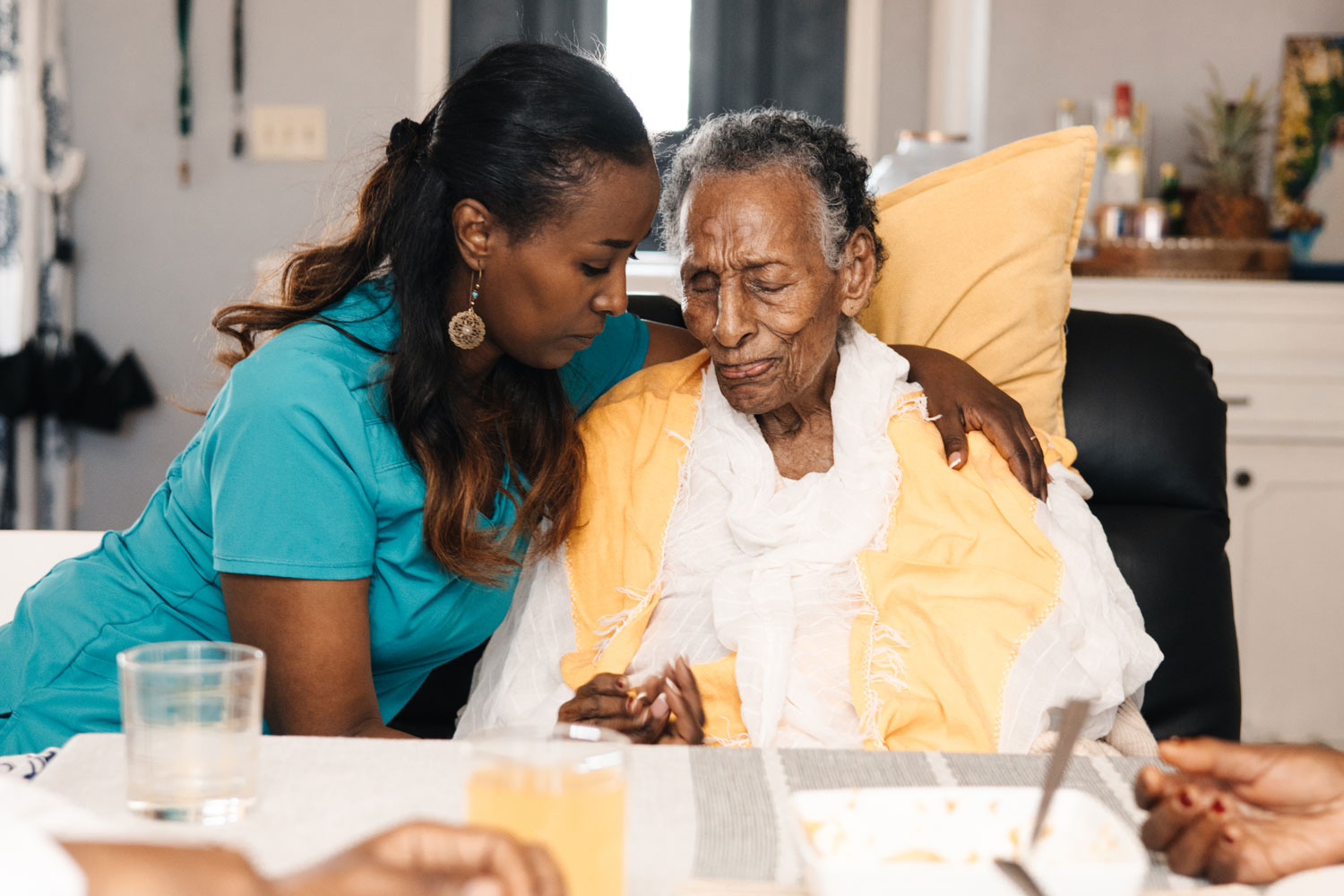Housing Stabilization Services In Minnesota

Homelessness and housing instability have long been pressing issues for many, especially within the Twin Cities, Minnesota area. For vulnerable individuals with disabilities or mental health challenges in our community, finding and maintaining stable housing can be even more daunting. Housing Stabilization Services (HSS) provide a lifeline to those struggling to navigate the complex housing landscape in the Twin Cities. This blog post will take you on a journey through the intricacies of HSS and help you understand how these vital services can transform lives and promote housing stability for those in need locally.
Table Of Contents
Key Takeaways
• Housing Stabilization Services provide individuals facing homelessness or institutionalization with support services and referrals to facilitate a smooth transition into housing in the community.
• Eligibility criteria must be met, including an assessment of needs and provision of documentation.
• HSS offers comprehensive assistance through housing consultation, transition services, sustaining services, access to resources & provider relationships for long-term stability.

Understanding Housing Stabilization Services
Housing Stabilization Services are designed to help vulnerable individuals find and maintain housing through a range of support services.
The primary purpose of HSS is to facilitate an individual’s transition into housing, bolster long-term stability in housing in the community, and preclude future periods of homelessness or institutionalization by addressing housing-related issues.
To access HSS, individuals can obtain a referral from their county case manager or contact the service provider directly. The initial step in obtaining these services involves engaging with a Housing Consultant Specialist, who may work closely with property managers to ensure a smooth housing search and transition process.
Medical Assistance and Housing Stabilization
Access to Housing Stabilization Services for eligible individuals is significantly facilitated by Medical Assistance. HSS is a type of Minnesota Medical Assistance benefit that assists individuals with disabilities, seniors, and those at risk of homelessness in locating and maintaining housing.
While HSS focuses on housing support, individuals with mental health needs may also benefit from intensive residential treatment services to address their mental health concerns.
Eligibility Criteria
Eligibility for HSS requires individuals to meet specific criteria such as:
• Enrollment in Medical Assistance
• Being at least 18 years old
• Having documented disability
• Evidence of housing instability
This selective approach ensures that HSS resources are effectively allocated to those most in need. When applying for HSS, applicants will need to provide documentation to demonstrate their eligibility.
Application Process
The application process for HSS involves several steps. First, an assessment is conducted to determine an individual’s housing needs and eligibility for the program. Next, applicants must furnish proof of their disability, often through a person-centered plan, which is a document that provides evidence of the disability and assessment outcomes.
Individuals seeking HSS must collaborate with a Housing Consultant Specialist to create a housing-focused person-centered plan, with the participant present. This plan, crucial to the application process, is specifically tailored to meet the unique needs and goals of each applicant
Key Components of Housing Stabilization Services
Housing Stabilization Services consist of three key components: housing consultation, housing transition, and housing sustaining services.
Each component plays a vital role in helping individuals find and maintain stable housing in the community.
Together, these components provide a comprehensive approach to addressing the diverse needs of vulnerable individuals seeking to secure and maintain housing.

Housing Consultation
Housing consultation forms an integral part of HSS, requiring collaboration with a specialist to formulate a personalized plan for housing acquisition and retention. This housing-focused person-centered plan is developed in collaboration with a Housing Consultant Specialist and provides support tailored to the individual’s unique needs and goals.
The advantages of housing consultation are numerous. Here are some of the benefits:
• Personalized support in locating and sustaining housing
• Tailored plan to tackle housing requirements and objectives
• Support and resources to assist in accomplishing housing goals
Housing consultation services can provide valuable assistance in achieving housing stability and meeting individual needs.
The process typically entails an initial assessment, formulation of a plan, implementation of the plan, and continuous monitoring and support.
Housing Transition
Housing transition services are instrumental in assisting individuals with:
• Planning, locating, and relocating to appropriate community homes
• Housing transition planning
• Housing stability case management
• Assessing housing strengths and barriers
• Goal setting and support in achieving housing stability
These community-based services support individuals in achieving housing stability through housing services.
It is important to note that services provided during the transition process can be delivered directly or indirectly to the person receiving services. However, documentation must specify whether the service was provided as a direct or an indirect service.
Regardless of the method, housing transition services are essential in assisting individuals in moving from one housing situation to another, such as transitioning from homelessness to a permanent residence or from a shelter to transitional housing.
Housing Sustaining Services
Also referred to as Housing Stabilization Services, housing sustaining services offer continual assistance to individuals, facilitating their stay in community homes. These services offer:
• Assistance in finding and keeping housing
• Housing transition planning
• Housing stability case management
• Evaluating housing strengths and barriers
• Facilitating goal setting and support in achieving housing stability.
The objective of housing sustaining services is to facilitate individuals in maintaining their desired residence. By offering continuous support, these services can help ensure that individuals remain in stable housing and avoid the risk of homelessness or institutionalization.
Working with Housing Stabilization Services Providers

Individuals seeking to access housing support and resources will find it beneficial to collaborate with a housing stabilization services provider. These providers offer a variety of services, such as:
• Rental assistance
• Case management
• Housing counseling
• Referrals to other community resources
To take advantage of these services, one must meet the housing stabilization services eligibility criteria set by the providers. Their aim is to assist individuals and families in achieving and sustaining stable housing.
Provider Offering Resource Information
The success of individuals seeking housing assistance is significantly influenced by providers that offer resource information. They furnish access to:
• Housing assistance programs
• Financial assistance
• Legal advice
• Other services that can help individuals achieve housing stability
These resources can be beneficial in locating and maintaining stable housing.
Accessing resources through housing stabilization services providers can facilitate individuals in locating and sustaining housing more promptly and conveniently, as well as provide access to other services that can assist with housing stability. These resources can be accessed through various methods, such as online, in-person, or referral from a reliable source.
Maintaining Key Relationships
Long-term housing stability is greatly enhanced by maintaining robust relationships with housing stabilization services providers. These relationships enable individuals to gain access to resources and services that can aid them in remaining in their homes and avoiding homelessness. Furthermore, fostering trust and understanding between the provider and the individual can result in more positive outcomes.
Individuals can foster and preserve effective relationships with providers by:
• Being forthright and candid about their objectives and objectives
• Conversing on a regular basis
• Adhering to their pledges
• Being respectful and cognizant of the provider’s position and duties.
Addressing Housing Challenges for Individuals with Mental Illness
Individuals with mental illness face unique challenges in finding and maintaining stable housing, such as:
• Housing instability
• Difficulty in meeting rent obligations
• Overcrowded living conditions
• The potential for homelessness.
Housing Stabilization Services can be instrumental in tackling these challenges, given that housing instability could worsen mental health conditions, while stable housing has the potential to foster mental health and holistic well-being.
By providing tailored support and resources, Housing Stabilization Services can facilitate individuals with mental illness in locating and sustaining stable housing, which can enhance their mental health and general welfare.
The essential elements of housing stabilization services, such as housing consultation, housing transition, and housing sustaining services, work together to provide a comprehensive approach to addressing the diverse needs of vulnerable individuals seeking to secure and maintain housing.
Summary
In conclusion, Housing Stabilization Services provide a vital lifeline for vulnerable individuals struggling to find and maintain stable housing. By offering tailored support through housing consultation, housing transition, and housing sustaining services, HSS can help address the unique challenges faced by individuals with disabilities, seniors, and those at risk of homelessness.
As you now understand the intricacies of HSS, it’s important to remember that these services have the potential to transform lives and promote housing stability for those in need. With the right support, resources, and relationships, vulnerable individuals can overcome housing challenges and work towards a brighter, more stable future
Frequently Asked Questions
Housing Stabilization Services in MN is a Medical Assistance benefit to assist people with disabilities, seniors and those with mental illness or substance use disorder to find and maintain suitable housing. It provides updates to help them stay informed.
To be eligible for Housing Stabilization Services, applicants must be 18 or older and enrolled in Medical Assistance, have a documented disability, and demonstrate housing instability.
A housing-focused person-centered plan is a collaborative effort between an individual and a Housing Consultant Specialist to assist in the process of locating and maintaining secure housing.
Housing transition services enable individuals to access housing stability and find suitable homes by providing planning, case management, assessments, goal setting, and supportive guidance.
Housing stabilization services providers offer rental assistance, case management, housing counseling, and referrals to other community resources to help individuals and families achieve and maintain stable housing.
testimonials

“My experience with Safeway Home Health started when I was in need for housing and the staff was able to find me comfortable and safe housing and from there, I’ve only had positive experiences! The staff is caring and stays on top of the game!”
— David

“Safeway Home Health feels like family to me. The staff there is like a big, loving family. They always go above and beyond to help me, respect me, and make sure I feel understood. It’s incredible to have Safeway provide staff who can speak my language and appreciate my culture. Safeway is truly a place where I feel welcomed and cared for.”
— Dinknesh

“Since I’ve been using Safeway Home Health the last few years, I’ve had many types of support services and my quality of life has improved with the help of the staff. They strive to always do better as a company and to meet the clients’ needs.”
— Rachel
Ready to take the first step towards a stable and independent home?
Contact us at 651-500-1157 or use the form here to connect with our team of housing experts to learn more about our Housing Stabilization Services and how we can support you on your journey.